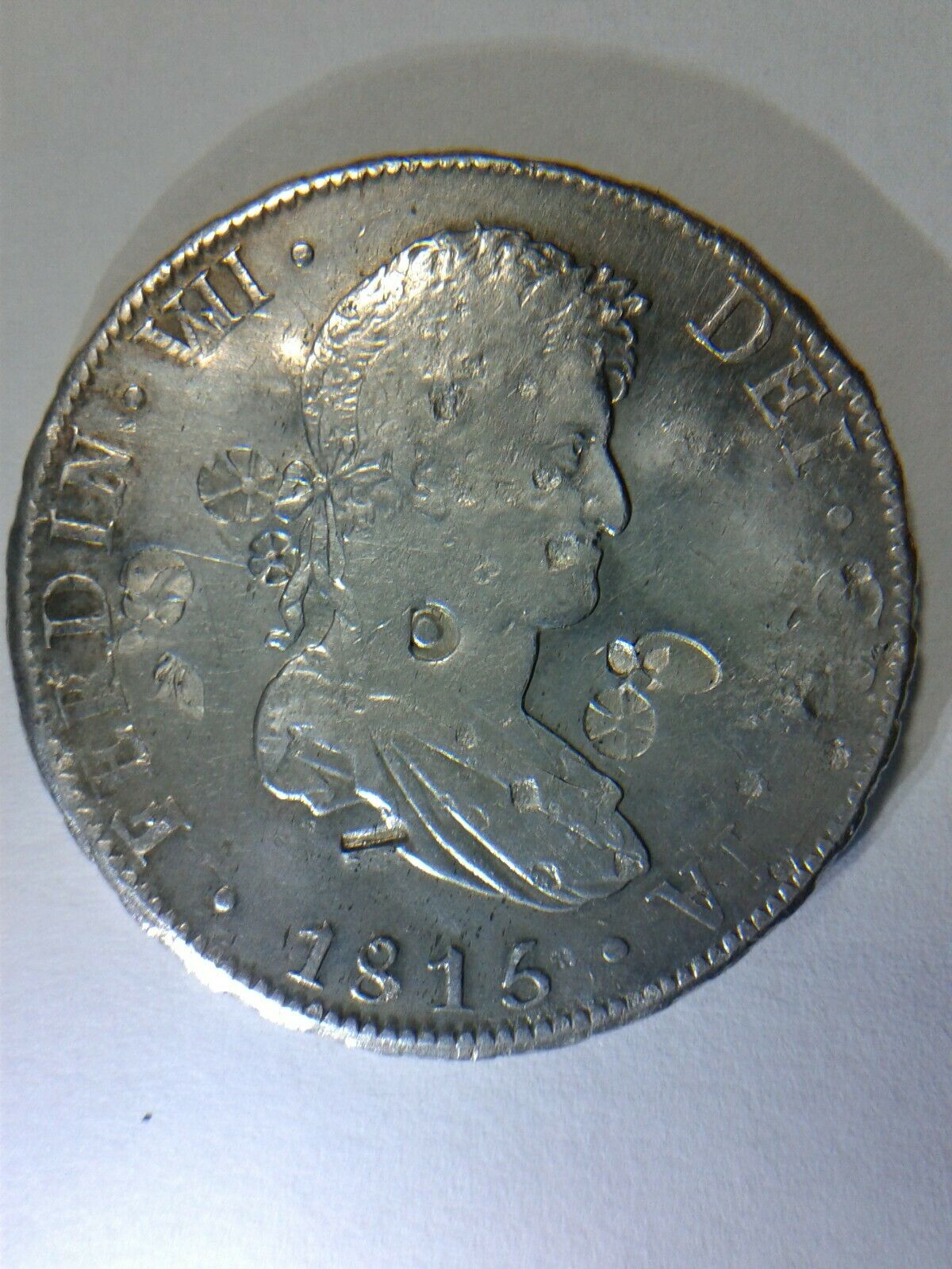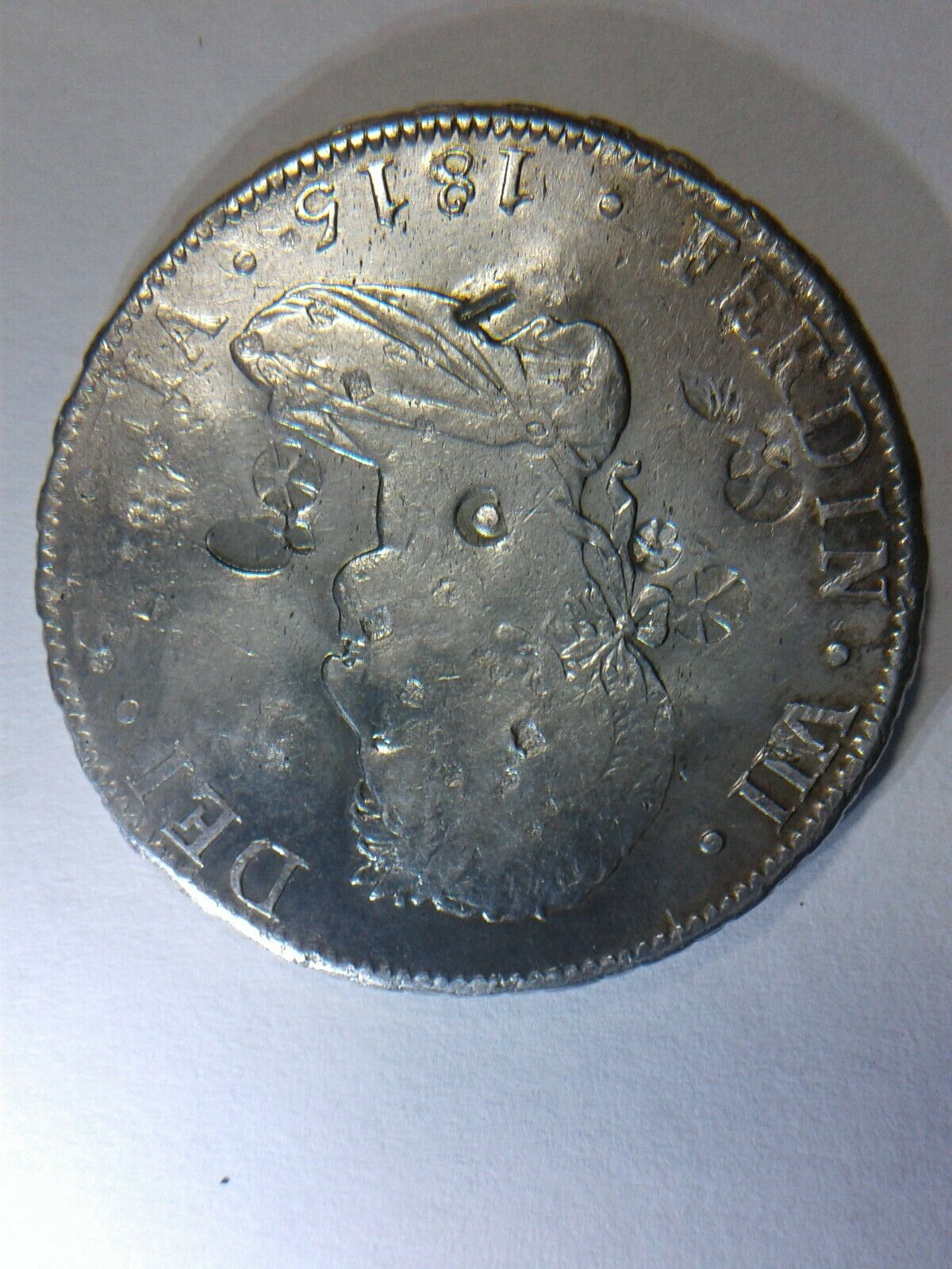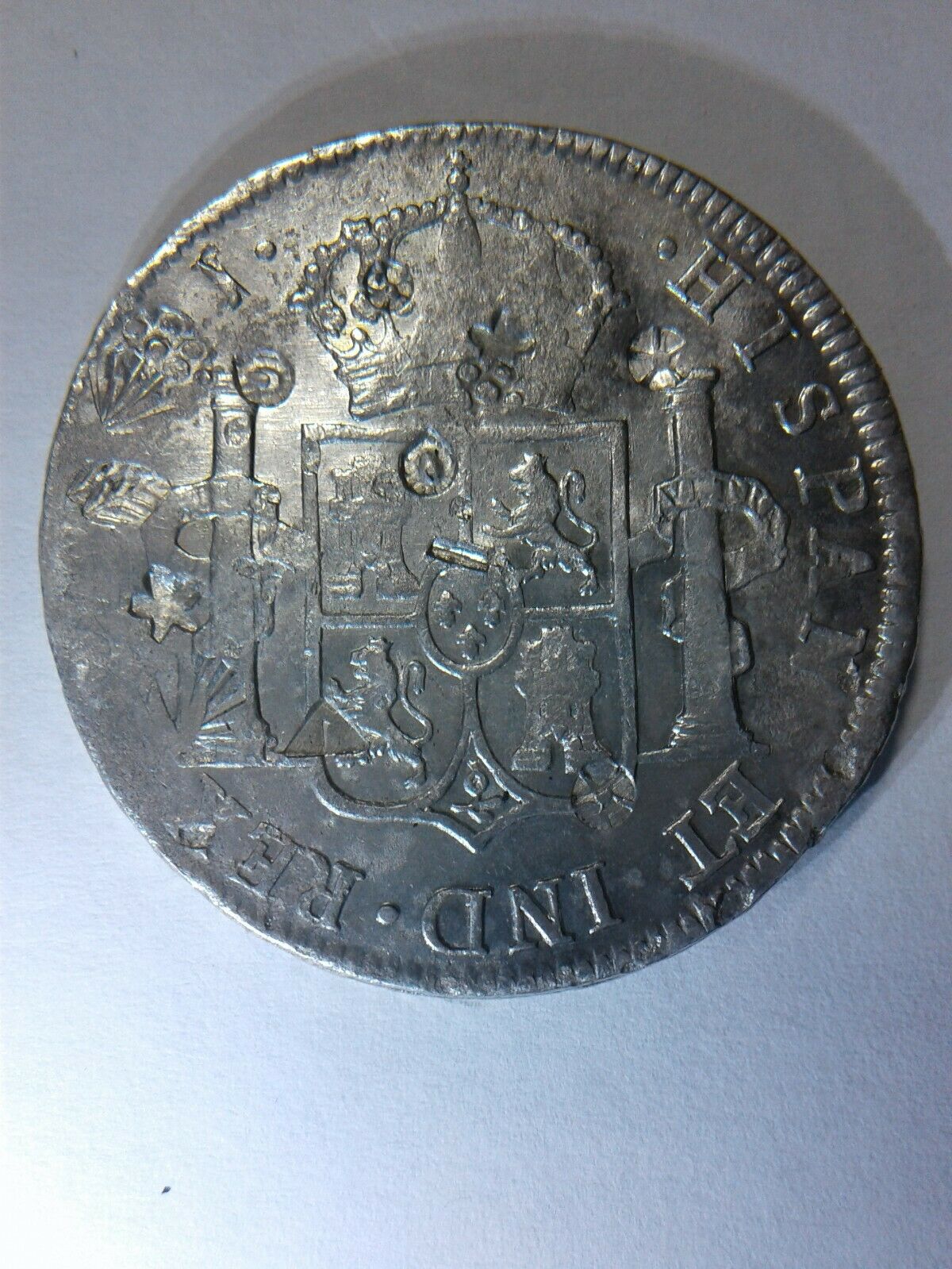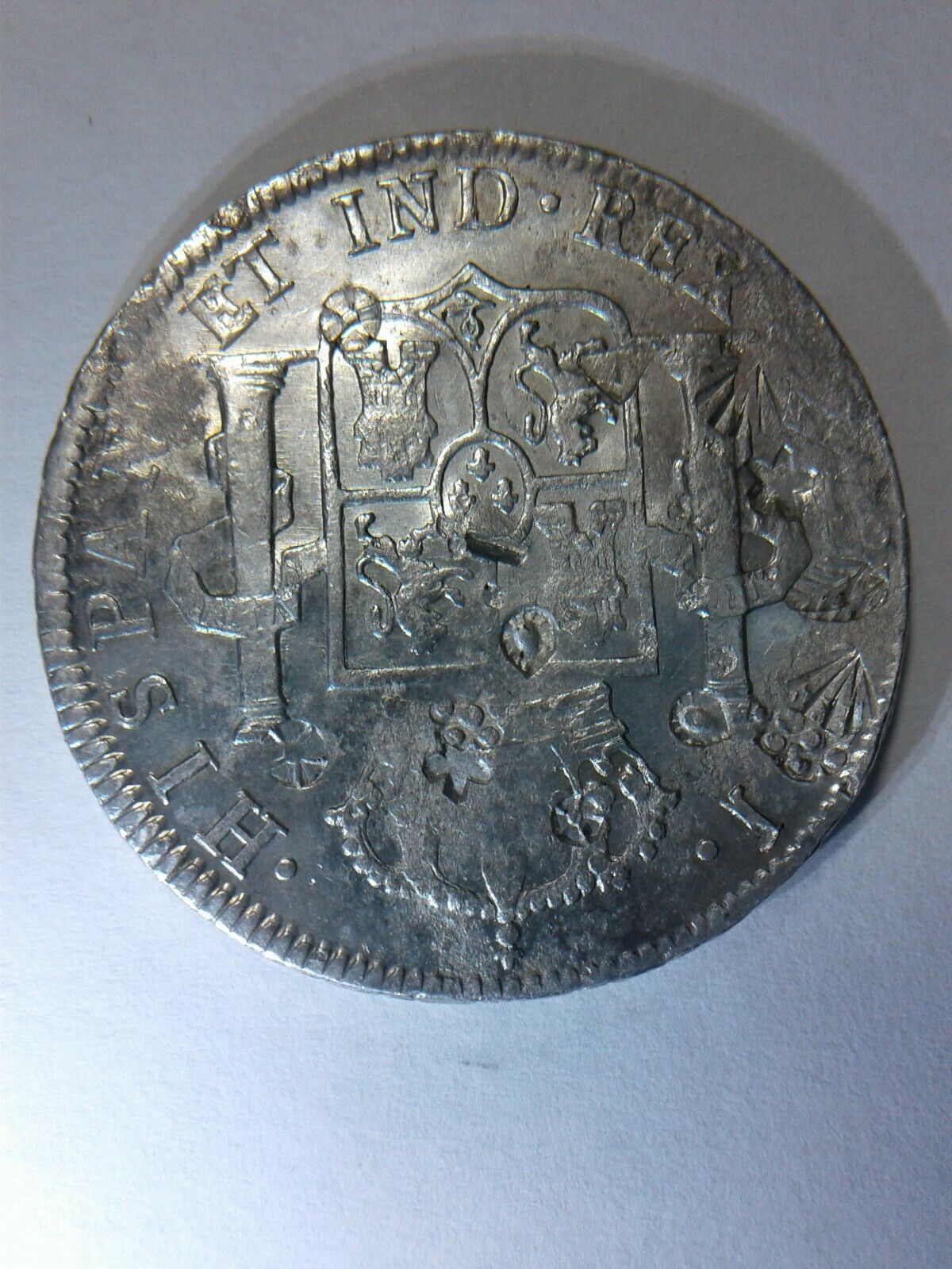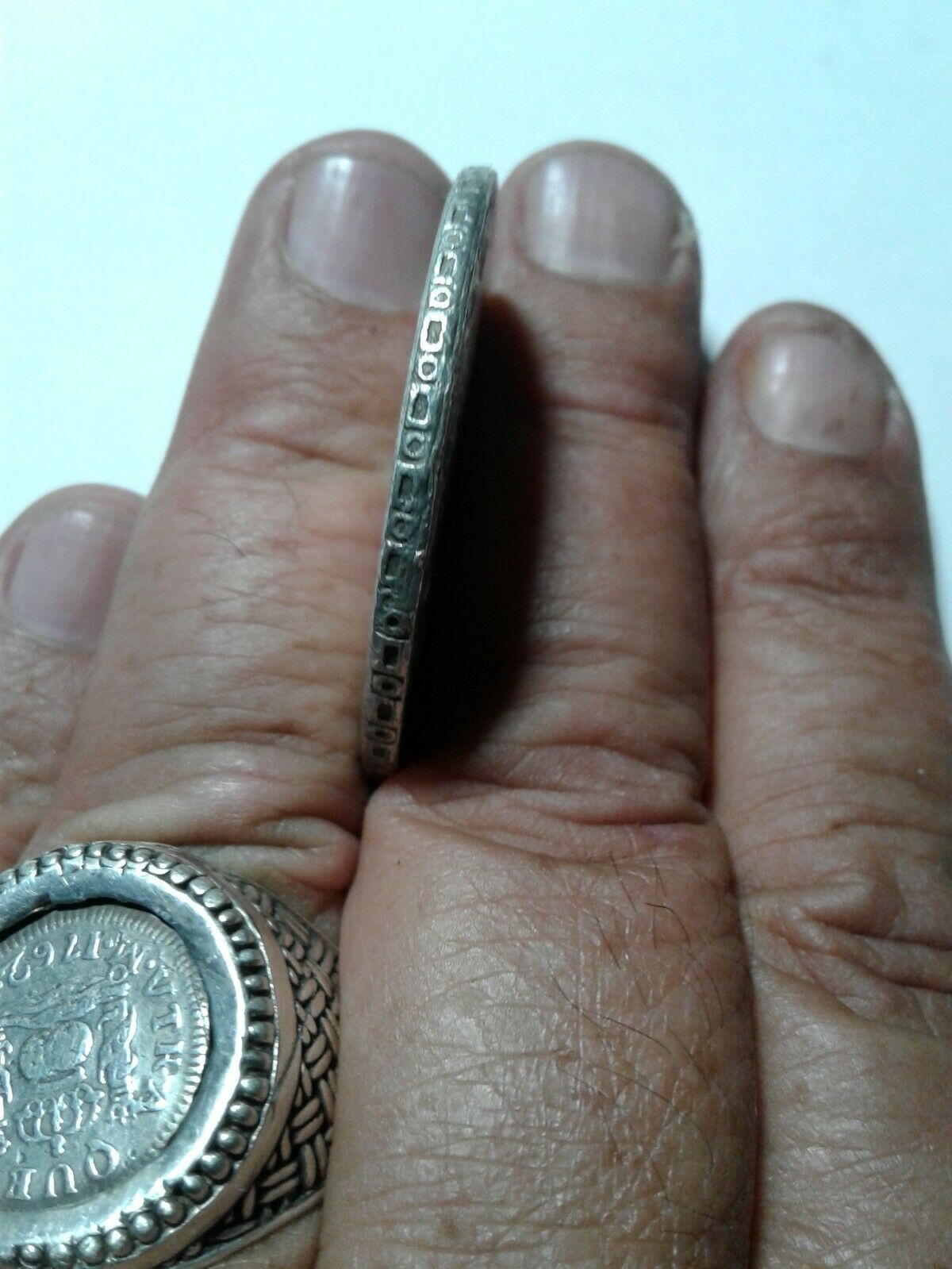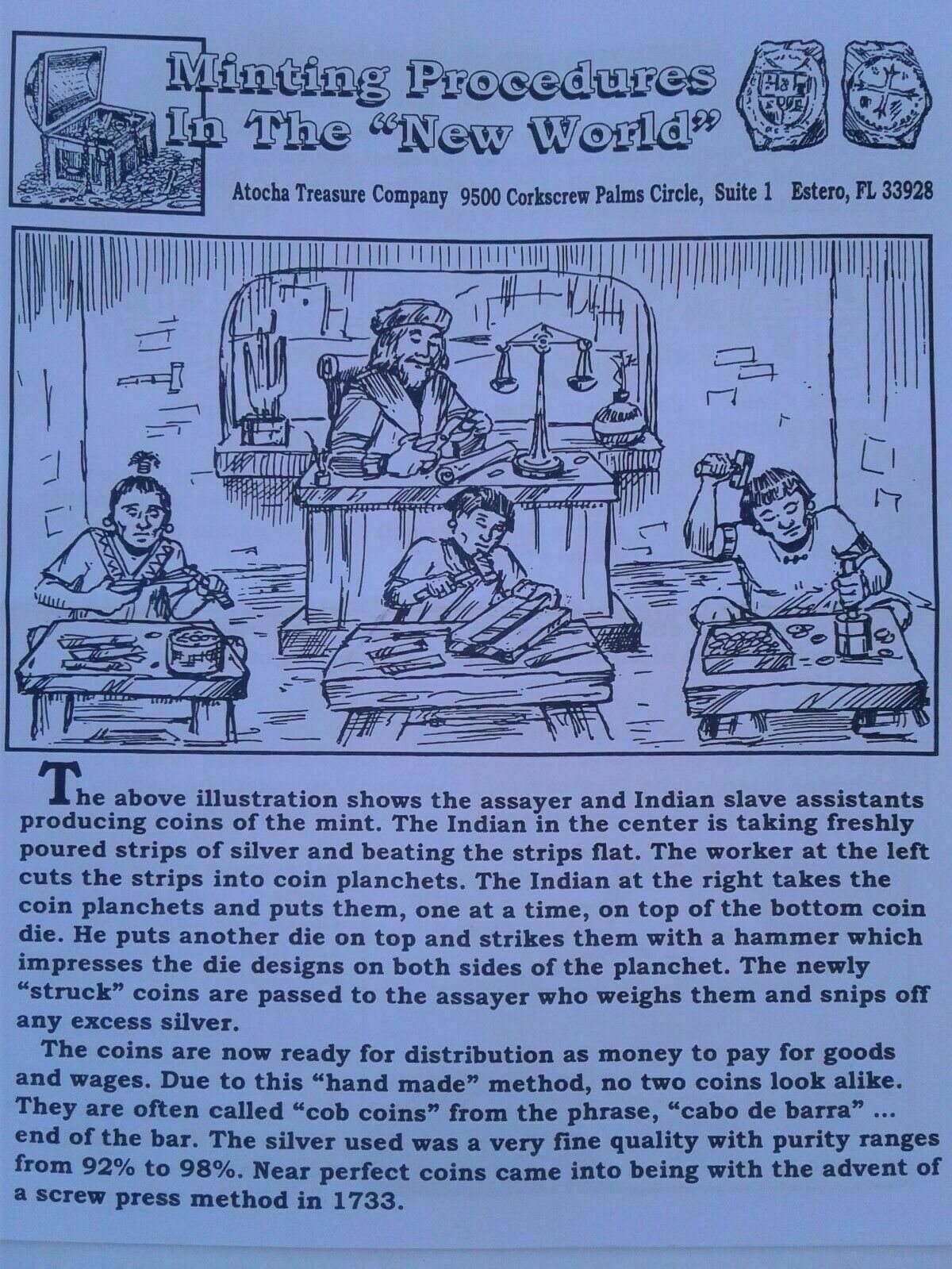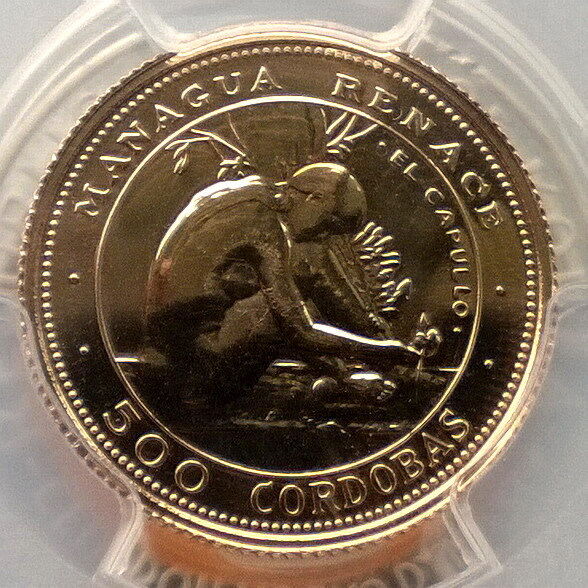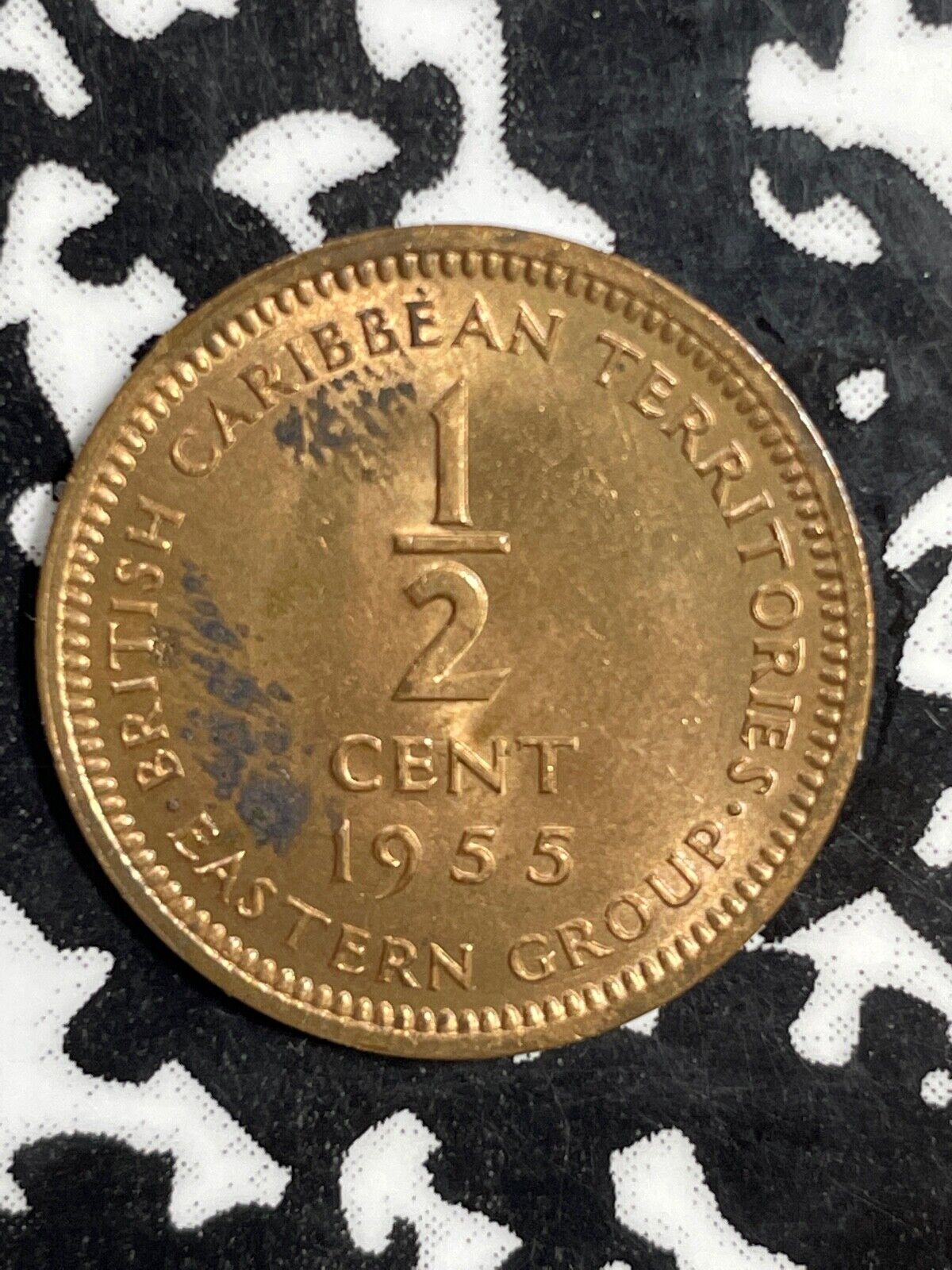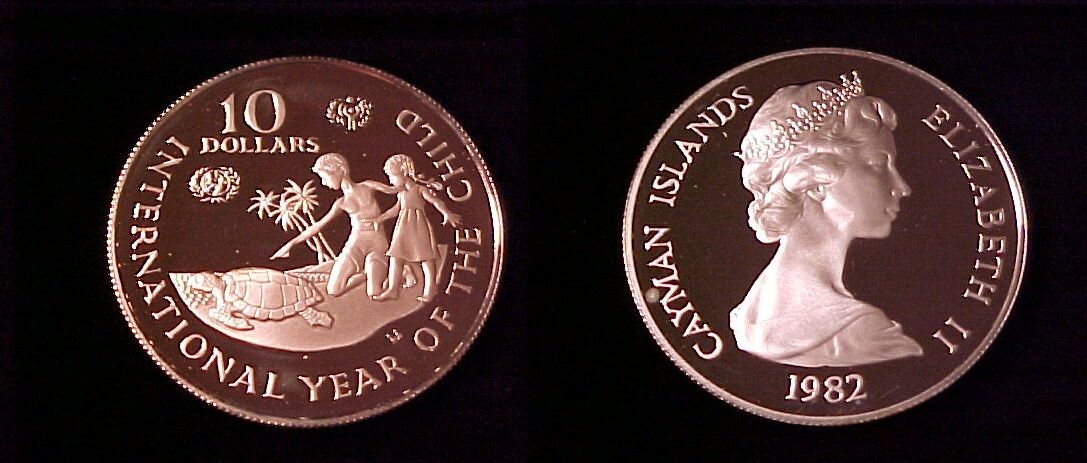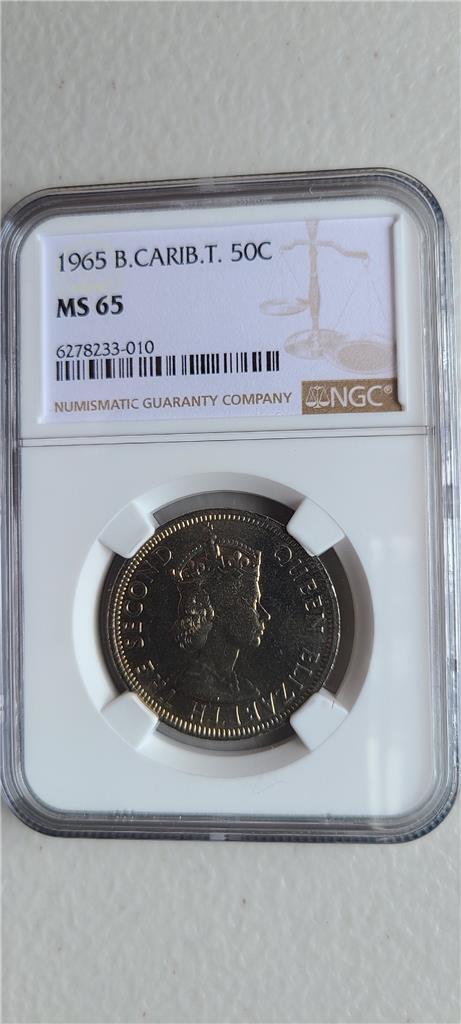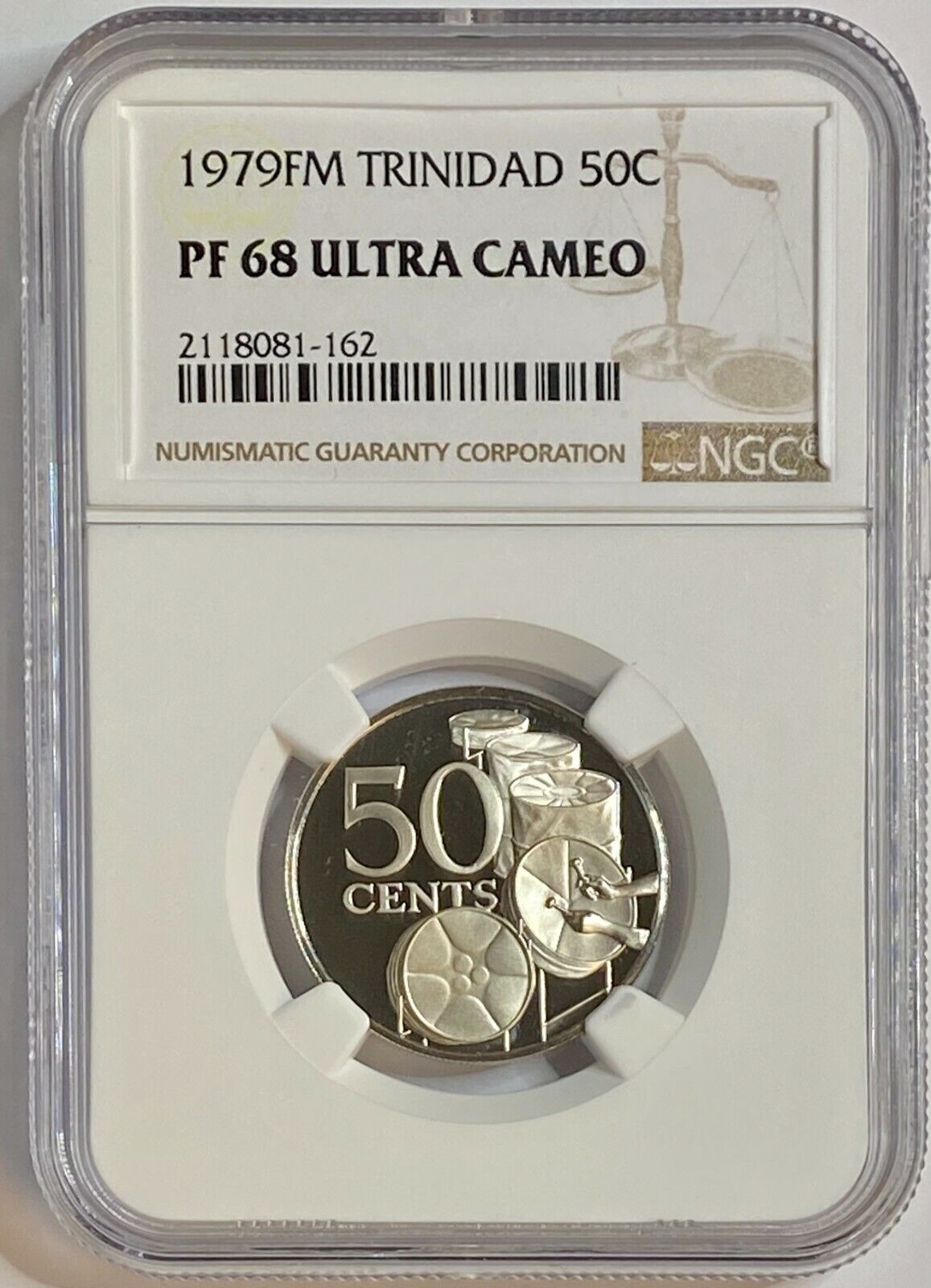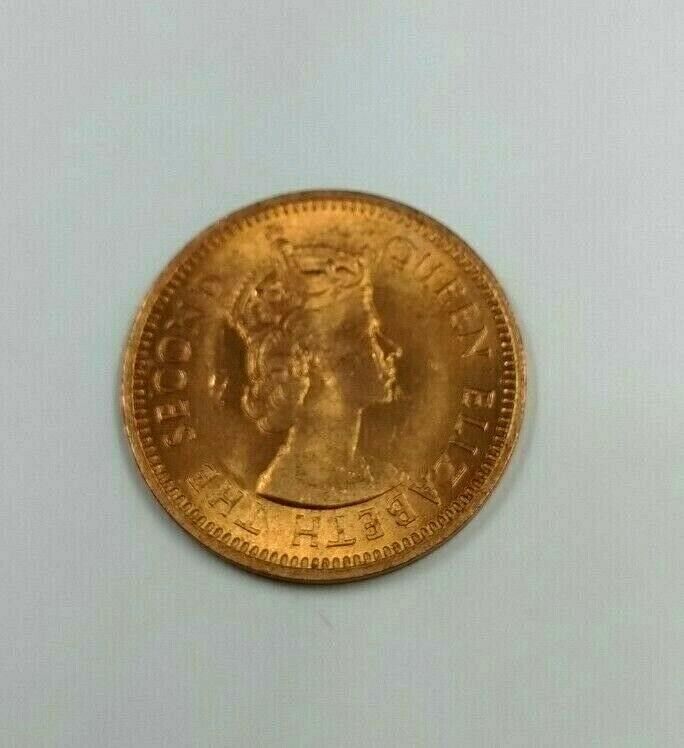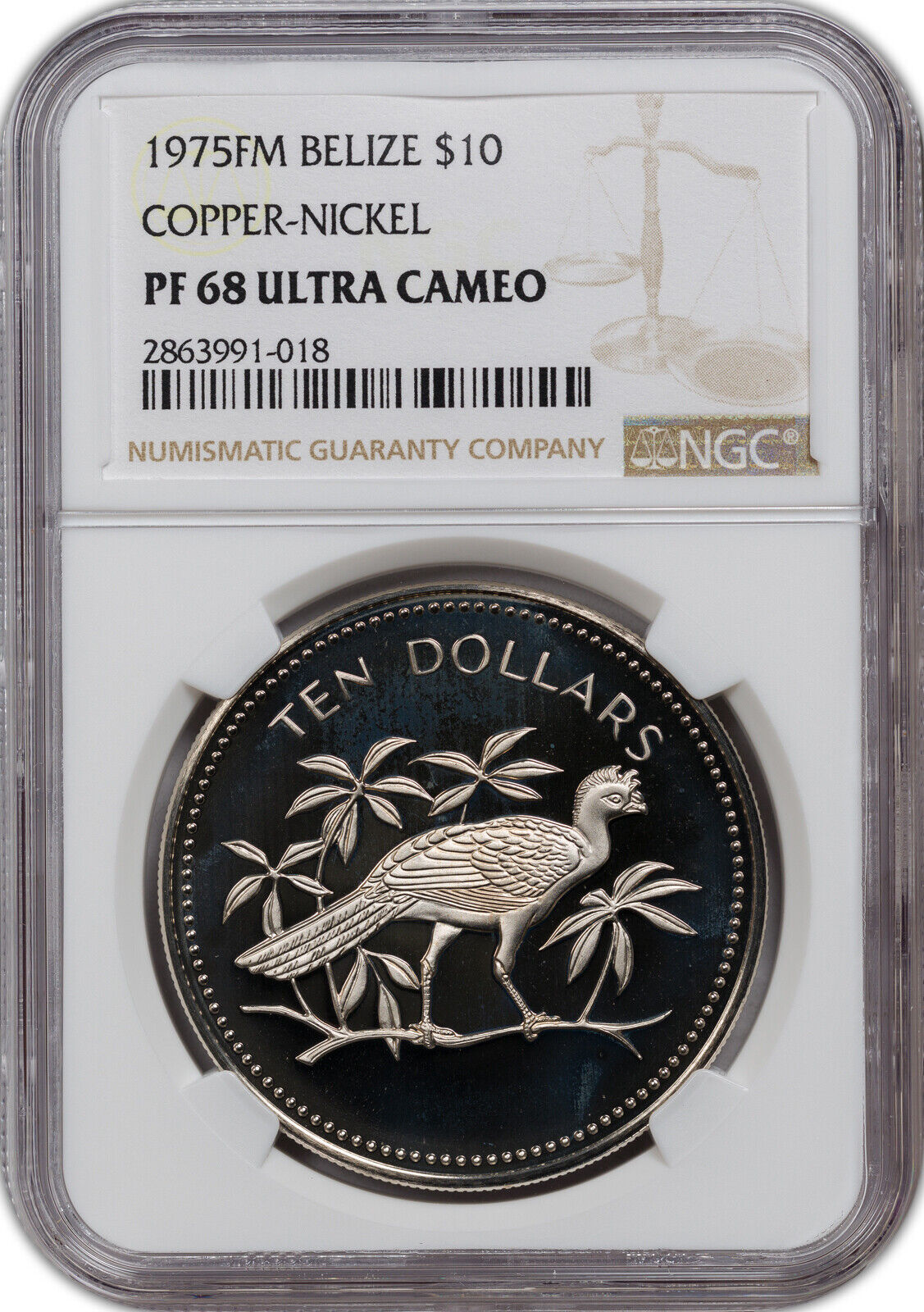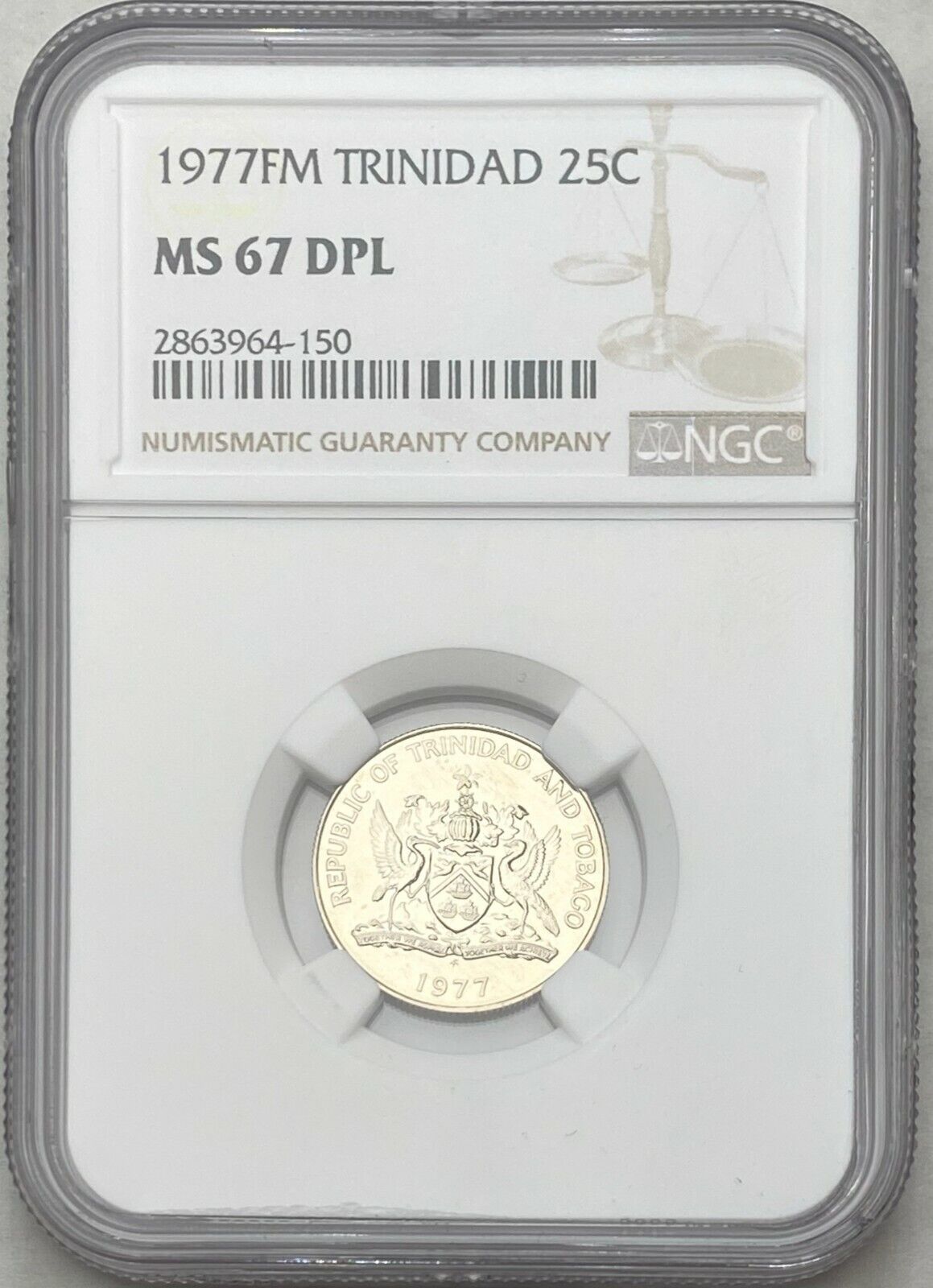-40%
1815 8 Reales F/M ? J Chile Ferdinand VII & Asian Chop Marks
$ 19
- Description
- Size Guide
Description
Authentic Coin of:Spain
under
Ferdinand VII
- King of Spain: 1808 & 1813-1833
1815 S/G ? J Silver 8 Reales 38mm (27.00 grams) 0.903 Silver (0.7859 oz ASW) Reference: KM# 466.3 Engraver: Felix Sagau Dalmau de Galceran
FERDIN·VII· DEI·GRATIA ··, Laureate draped bust of the king right.
Ferdinand VII
(Spanish:
Fernando
; 14 October 1784 - 29 September 1833) was twice King of Spain: in 1808 and again from 1813 to his death. He was known to his supporters as
the Desired
(
el Deseado
) and to his detractors as
the Felon King
(
el Rey Felón
). After being overthrown by Napoleon in 1808 he linked his monarchy to counter-revolution and reactionary policies that produced a deep rift in Spain between his forces on the right and liberals on the left. Back in power in 1814, he reestablished the absolutist monarchy and rejected the liberal constitution of 1812. He suppressed the liberal press from 1814 to 1833 and jailed many of its editors and writers. Under his rule, Spain lost nearly all of its American possessions, and the country entered into civil war on his death.
His reputation among historians is very low. Historian Stanley Payne says:
He proved in many ways the basest king in Spanish history. Cowardly, selfish, grasping, suspicious, and vengeful, [he] seemed almost incapable of any perception of the commonwealth. He thought only in terms of his power and security and was unmoved by the enormous sacrifices of Spanish people to retain their independence and preserve his throne.
Spain
, officially the
Kingdom of Spain
(Spanish:
Reino de España
), is a country mostly located on the Iberian Peninsula in Europe, with there also being two large archipelagoes, the Balearic Islands in the Mediterranean Sea and the Canary Islands off the African Atlantic coast, two cities, Ceuta and Melilla, on the African mainland and several small islands in the Alboran Sea near the African coast. The country's mainland is bordered to the south and east by the Mediterranean Sea except for a small land boundary with Gibraltar; to the north and northeast by France, Andorra, and the Bay of Biscay; and to the west and northwest by Portugal and the Atlantic Ocean. It is the only European country to have a border with an African country (Morocco) and its African territory accounts for nearly 5% of its population, mostly in the Canary Islands but also in Ceuta and Melilla.
Flag & Coat of Arms
With an area of 505,990 km
2
(195,360 sq mi), Spain is the largest country in Southern Europe, the second largest country in Western Europe and the European Union, and the fourth largest country in the European continent. By population, Spain is the sixth largest in Europe and the fifth in the European Union. Spain's capital and largest city is Madrid; other major urban areas include Barcelona, Valencia, Seville, Bilbao and Málaga.
Modern humans first arrived in the Iberian Peninsula around 35,000 years ago. Iberian cultures along with ancient Phoenician, Greek and Carthaginian settlements developed on the peninsula until it came under Roman rule around 200 BCE, after which the region was named
Hispania
, based on the earlier Phoenician name
Sp(a)n
or
Spania
. At the end of the Western Roman Empire the Germanic tribal confederations in migration from Central Europe invaded the Iberian peninsula and established themselves in relatively independent realms in its western provinces, including the Sueves, Alans and Vandals. Eventually, the Visigoths would integrate by force all remaining independent territories in the peninsula, including Byzantine provinces into the Kingdom of Toledo that more or less unified politically, ecclesiastically and legally all the former Roman provinces or successor kingdoms of what was then known in documents as Hispania.
The Visigothic kingdom fell to the Moors except in the north where shortly after started a process known as Reconquista. Spain emerged as a unified country in the 15th century under the Catholic Monarchs, who completed the eight centuries-long
Reconquista
in 1492. In the early modern period, Spain became one of history's first global empires, leaving a vast cultural and linguistic legacy that includes over 500 million Hispanophones, making Spanish the world's second most spoken native language, after Mandarin Chinese.
Spain is a parliamentary democracy and constitutional monarchy, with King Felipe VI as head of state. It is a major developed country with the world's fourteenth largest economy by nominal GDP and sixteenth largest by purchasing power parity. It is a member of the United Nations (UN), the European Union (EU), the Eurozone, the Council of Europe (CoE), the Organization of Ibero-American States (OEI), the Union for the Mediterranean, the North Atlantic Treaty Organization (NATO), the Organisation for Economic Co-operation and Development (OECD), OSCE, the Schengen Area, the World Trade Organization (WTO) and many other international organisations. Spain has a "permanent invitation" to the G20 summits that occur generally once a year.
